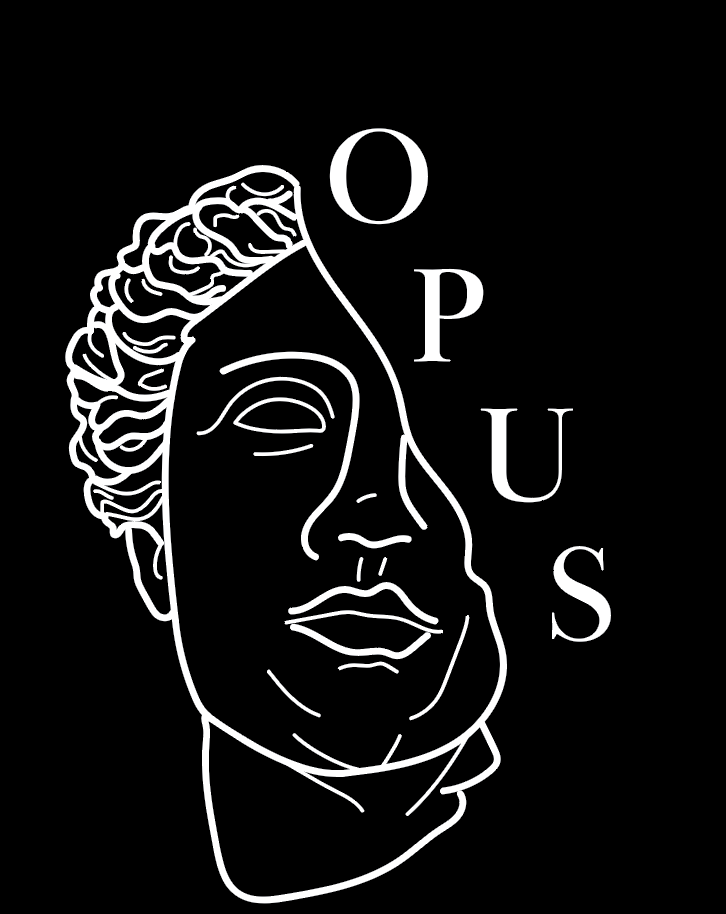Common poetry critiques from Opus staff and how to avoid them
BY ADRIANA BARKER
Have you ever felt like the criteria for getting a piece into Opus is elusive and mysterious? Maybe you’ve been frustrated with a poem you thought deserved publication, or you just didn’t understand the notes you got on it. Well, I’m here to help! In this post, I’ll share with you a behind-the-scenes look into some of the most common critiques we mysterious Opus editors have about your pieces, and how to avoid them. With this handy guide, you’ll be that much closer to getting published.
Capitalization and Punctuation
Before I say anything about this subject, I do want to make it clear that capitalization and punctuation issues alone will not always result in a rejection. Often, if we love a poem but wish that minor capitalization tweaks were made, we will accept the poem on the condition that it is adjusted. Saying that, here goes.
How do you feel about capitalization In the middle of a sentence? Doesn’t make sense, right? We learned in elementary school that capitalization belongs to the first word in a sentence. So if every line in your poem begins with a capital letter but not every line starts a new sentence, you are essentially doing what I did in the first sentence of this paragraph. And it bugs us. Here is an example of what we often see versus what we would like to see:
The trees are
Turning new colors.
Pumpkin spice
Is in the air.
It’s finally fall!
Versus
The trees are
turning new colors.
Pumpkin spice
is in the air.
It’s finally fall!
Look at how much nicer the lines flow when you aren’t distracted by the unnecessary capitalization! And lucky for you, this is a very simple fix. Next let’s look at another simple fix—punctuation. Julia Kirby, a past Opus co-editor, would always say that with punctuation “it’s all or nothing.” If your poem has no punctuation, that is your stylistic choice, and you should probably have a reason for it—but we don’t mind it. In fact, if you do it well, it is really good. On the other hand, if your punctuation is perfect, and everything makes grammatical sense, great! We love to see it. But if your poem has random punctuation, we’re gonna nitpick a little. If we can’t find a reason you end a thought with a period a couple times but then have odd run-on sentences everywhere else, that’s not going to help your poem. Inconsistent punctuation often leads to confusion about the ideas you are trying to convey in your poem, too, and we want to hear what you are trying to say in your poem without any confusion!
Imagery
We love to see poems with good, quality images that make us stop in our tracks. Poetry is all about conveying emotions and ideas through vivid imagery. If your poem leans more heavily on rhetorical questions and abstract ideas that aren’t conveyed through images, we’ll be a little more likely to say no. These lines from Wordsworth’s “I Wandered Lonely as a Cloud” are a great example of a poem packed with imagery:
“I wandered lonely as a cloud
That floats on high o’er vales and hills,
When all at once I saw a crowd,
A host, of golden daffodils;
Beside the lake, beneath the trees,
Fluttering and dancing in the breeze.”
Compare that beautiful scene with these lines:
Sometimes I get lonely
and wonder to myself at night
why am I not in love?
Where am I going in life?
What is a girl to do?
How could I improve upon those lines I wrote? Well, what does it look like when I am asking these questions? Am I tossing and turning, blankets getting all bunched up? Am I crying? Am I angry, throwing things and punching the wall? There is a way to work imagery into everything. Get creative, get unique. Ask yourself what kinds of crazy metaphors you can make. Adding more imagery will take your good poems and turn them into amazing ones.
Condensing
Another comment we frequently make—this poet could condense here, or here. Here they are saying the same thing they said before. Here they could lose a word or two that aren’t important. Read over your poem and ask yourself: what am I really trying to say here? How can I say it in the least amount of words possible? You don’t have to go to extreme lengths cutting down your poem so that you lose the spirit of it, but focus on consolidating your thoughts. Reference one of my favorite short poems, by William Carlos Williams:
This Is Just To Say
I have eaten
the plums
that were in
the icebox
and which
you were probably
saving
for breakfast
Forgive me
they were delicious
so sweet
and so cold
Also — this poem works as a good reminder that quality poems don’t have to have any punctuation!
The Mickey Mouse Effect
While punctuation and capitalization are good things to work on, and imagery always helps, none of those comments leads to a sure-fire rejection from Opus. So here we come to the dreaded Mickey Mouse effect. Coined during one of last semester’s Opus meetings, the Mickey Mouse effect is named for a poem we read that included an off-hand mention to Mickey Mouse. The poem was lovely, but what it was talking about did not really have anything to do with what we typically associate with Mickey Mouse, and the reference totally threw us off. So here I bring warning of the Mickey Mouse effect to you: be very, very careful of referencing things in your poem that have wide connotations different from the message or spirit of your poem. If, for example, you have a poem that talks about a beautiful snowy day, and you mention that it’s as cold as a certain politician’s heart (you pick), then all of a sudden we’re torn out of your beautiful snowy day into thinking about the most recent thing he or she did. That is not what you want. Similarly, poems that include off-hand references to Disney, Avengers or Star Wars characters often get the critique of “Well, I like it, but this reference to so-and-so makes no sense.” The current Opus editors have a strong dislike for anything falling under the Mickey Mouse effect. I’m not going to say that it is a guaranteed rejection, but I will say I don’t remember a poem yet to get voted in that had this critique.
Considering all of that, I think it is important to point out that references that fall under the Mickey Mouse effect are not inherently bad, but they often serve to distract us editors from your unique images. We want to see more of your brilliant imagination and less of what some studio exec cooked up.
Final Thoughts
Obviously, this list is not meant to be a hard-and-fast guide to whether or not your piece will be rejected or accepted. You can break these rules and write an amazing poem. You can follow all of these rules and write a dud (We all do it! Myself included!). But hopefully this gives you a look into some of the things we are talking about at Opus meetings.
Last but not least, I will say this: the best way to figure out what Opus editors are thinking is to come to the meetings! At meetings we read a selection of poems, view a few art pieces and spend time discussing each and every submission. People who are not on staff are encouraged to speak up about their opinions on the pieces, and everyone in attendance is able to vote on the work! For me, meetings are not only valuable workshop time for the pieces I submit, but I get to see what all of Hope’s students are doing and learn from all of you! You’re all doing amazing. Keep up the great work.

About the Author
Hi! I’m Adriana. I am a junior creative writing and communication double major. My hometown is Fort Worth, Texas, so yes, I throw around the words “y’all” and “howdy” like nobody else in the Midwest. I love photography and poetry, and have published both in Opus. Particular interests include abstract painting, horror poetry, and all forms of creative work related to horses.


Raymond
Very interesting post with excellent tips and advice. Poetry is feeling placed into the measure. The feeling should stop essentially, however the measure can be procured by art. Thanks for sharing this blog.